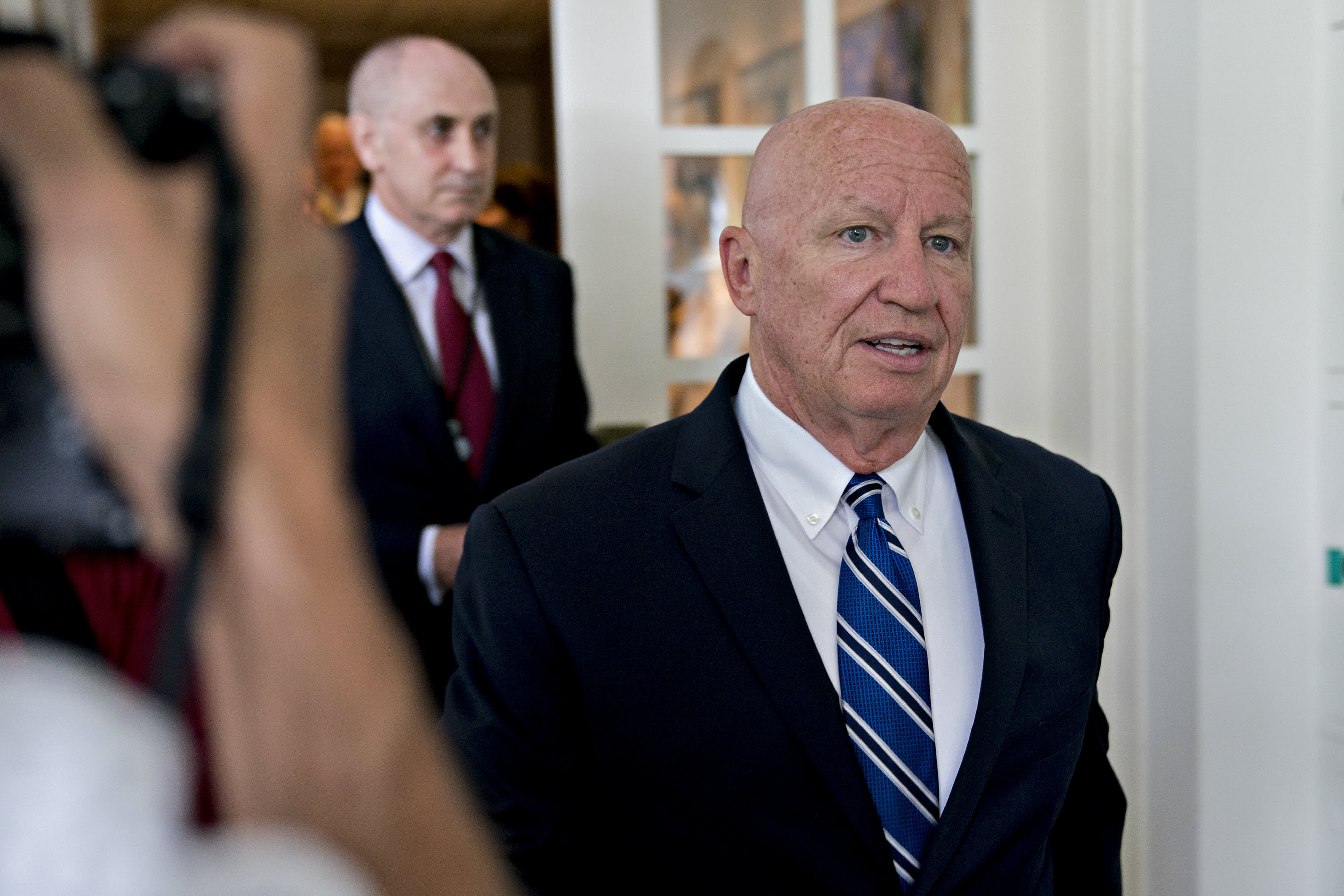Rep. Kevin Brady told CNBC on Friday that higher taxes and more regulations should not be put in place in response to the coronavirus economic crisis.
"I don't think you punish business in order to help that blue-collar worker. I think it's the opposite. We lift them together," the Texas Republican said on "Squawk Box."
Brady, ranking member on the tax-writing House Ways and Means Committee, said he believes policies enacted by the Trump administration, including the 2017 tax cut, helped put the U.S. economy in a robust position going into the coronavirus crisis. Brady was chairman of the committee three years ago when Republicans controlled the House and Senate.
"I still think the worst thing we could do would be to reverse those policies because I think they were key to us having this strong economy. They're going to be even more important going forward," Brady said Friday.
Brady said that letting workers "keep more of what they earned" is itself a boost to wages, and he contended that the overall strength of the economy also helped push wages higher and leads to more benefits for workers. He noted that workers on the lower end of the pay scale were seeing some of the biggest gains in 2018 and 2019.
There is some disagreement over the impact of the Tax Cuts and Jobs Act, which went into effect in 2018. A study published last May by the nonpartisan Congressional Research Service said most benefits in the law's first year went to corporations and the wealthy, with little boost to wages.
The coronavirus has brought widespread economic damage and resulted in a large government rescue effort, both in fiscal measures from Congress and monetary support from the Federal Reserve. In just five weeks, under state stay-at-home orders and nonessential business closures, the U.S. economy gave back all of the 24.4 million job gains and then some since the Great Recession.
Many agree that the government's massive spending in relief packages is necessary to weather the crisis, but opinions differ on what the long-term lessons from, and consequences of, such spending will be.
Billionaire investor Leon Cooperman told CNBC on Thursday that he believes the coronavirus crisis will likely change capitalism and lead to higher taxes.
"When the government is called upon to protect you on the downside, they have every right to regulate you on the upside," Cooperman said on "Squawk Box." "So capitalism is changed."
Brady told CNBC on Friday that he believes the post-crisis discussion must have "everything on the table." But he added, "I don't think making us less competitive, less attractive, and taking more of what people earn will ultimately be the answer here."


